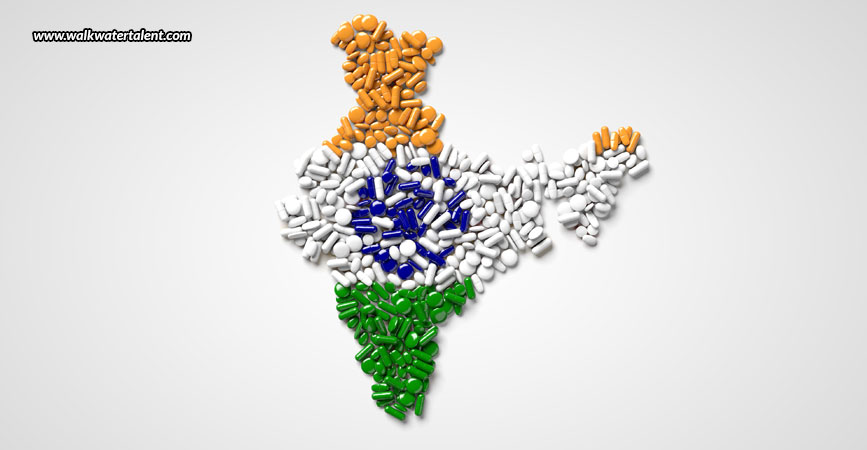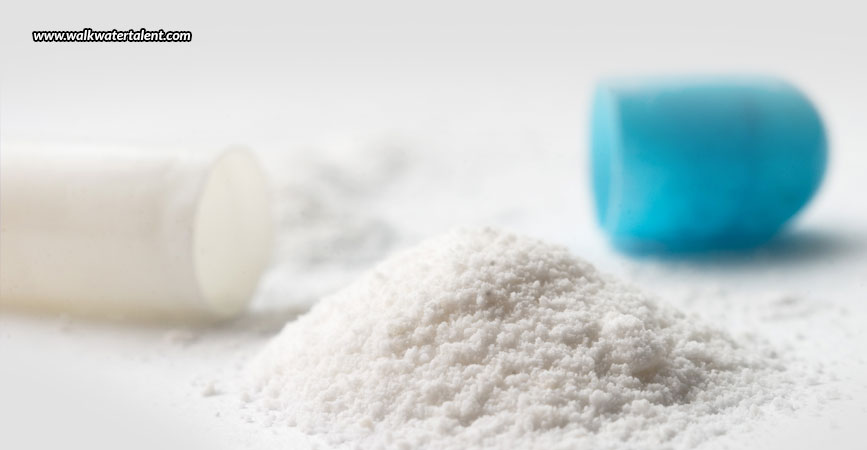
Atmanirbhar Bharat – Impact on Executive Hiring
We were quite pleased with the response we got to our first paper in our four part Atmanirbhar Bharat series, in which we took a closer look at the Defence Manufacturing sector. The second part of the series is about India’s pharmaceutical sector, with special focus on the current buzzwords – APIs. The Indian pharmaceutical industry has been a source of pride for the country for years, and is expected to be one of the strongest pillars on which the success of the Atmanirbhar Bharat movement will depend. Walkwater has earned its reputation as one of the leading talent acquisition companies in India, and we have an industry vertical dedicated to pharma, healthcare, and life sciences. This paper’s intent is not only to acknowledge the recent encouraging developments in the pharmaceutical sector, but also to understand what are the areas senior executives could look to for developing their skills and competencies in the coming years.

Part 2 – Pharmaceuticals
Amidst all the discussion about India’s self reliance in the Pharmaceutical sector, the acronym API has been very commonly used. The World Health Organization defines an API as a substance which has a “direct effect in the diagnosis, cure, mitigation, treatment or prevention of disease”. In simpler terms, an API is the chemically active ingredient in any medical formulation. There are other inactive components too, which help to deliver the intended effects of the API to our system. They are also called excipients, or fillers, or bulking agents.
Way back in 2007, McKinsey had recognized the potential of the Indian pharmaceutical sector in a detailed case study and made its projections about the status of the Indian pharma industry in 2015. They predicted that the market would grow at a compounded annual growth rate of 12 to 14 per cent to become a USD 20 billion to USD 24 billion market by 2015. They were slightly off the mark, though, and the approximately $20 billion size of the Indian pharma market was reached only in 2019. Now, the outlook from industry watchers is that it would touch $55 billion by 2025. But there are a few slips between the cup and the lip.
India is still referred to as the pharmacy of the world, but we are far from self sufficient in the production of APIs. In fact, a shockingly large percentage of our intermediaries as well as APIs are still imported from China. This is in spite of the fact that till the 1990s, India was manufacturing its own formulations as well as APIs. But like so many other manufactured products, China was able to produce APIs and intermediaries at a fraction of the cost that Indian companies incurred producing by themselves. Within 2 decades, the tides had turned and we became dependent on China and other countries for our APIs. In 2020, this situation became serious because of API prices being jacked up by China on account of Covid19 lockdowns and other restrictions. The situation is also grim in the medical devices & diagnostics sector, because almost all components including reagents, enzymes, antibodies & equipment are imported from China.
Every crisis is an opportunity in disguise, and the Atmanirbhar Bharat campaign couldn’t have come at a better time for the Indian pharmaceutical industry. PWC India was one of the earliest which came out with a white paper on what needs to be done to bring API manufacturing back to India. Most of the suggestions made by them were for the government in terms of stimulus packages, accommodative pricing, faster environmental clearances etc. To be fair, the government did take a tentative first step in 2015 by declaring the year as the Year of API, with a view to reducing dependencies on other countries including China. But this initiative remained largely on paper, with no big changes visible on the ground immediately. Like so many other aspects of business, it took a pandemic to prod us into action. In July 2020, the government announced a production linked incentive scheme for promotion of domestic manufacturing of critical Key Starting Materials (KSMs), Drug Intermediates, and APIs, along with a scheme for promotion of bulk drug parks.

This is expected to give a fillip to both existing and new Indian players in the API manufacturing landscape. Some of the big names who have already made a name for themselves are Aurobindo Pharma, which has already tasted success in both the API space as well as in formulations, Dr. Reddy’s, which already offers close to 160 APIs to prospective partners, Hikal, which has been in the news recently owing to its successful development of the anti-viral Favipiravir formulations, Lupin, one of the star exporters for India, with a footprint in over 50 countries at present, and Sun Pharma, with an impressive roster of more than 300 APIs which they use internally for their formulations and also export to almost 60 countries of the world.
India has traditionally been talked about for its undeniable cost arbitrage and well established programming skills in the informational technology sector. But pharmaceuticals is a sector where we were strong till two decades back, and still have the wherewithal to reclaim world leadership. While the government and corporates do their bit to make this happen, we would need qualified and experienced manpower for specific skill sets.
As one of the top retained executive search firms In India, these are some of the areas in which we expect senior level hiring to accelerate in the coming years:
- Quality Control and Quality Assurance
- Manufacturing
- Upstream/Downstream Cell Culture Manufacturing
- Sourcing (API)
- Regulatory Affairs
- Process Engineering
- Drug Development Project Management
- BD and Merger & Acquisition
- In licensing and Out Licensing

These exciting developments in India have also not been missed by the global leaders in the pharma sector and the big ticket investors and private equity funds. With 26 APIs and 1000 finished dosage formulations (FDFs), SeQuent Scientific had a strong presence in more than a 100 countries. In the month of May 2020, global investment firm Carlyle announced acquisition of 74% stake in SeQuent. In July this year, another global private equity investor Advent went ahead and announced its intent to acquire a controlling stake in RA Chem Pharma, which is a 17 year old Hyderabad based company with core focus on APIs, and which has gradually developed a more well rounded portfolio with offerings in pellets, formulations and clinical research. In the same month of July, one of India’s oldest pharmaceutical companies, JB Chemicals and Pharmaceuticals, was also in the news for similar reasons. This time the PE fund which came in for a piece of the M&A action was KKR, which announced it was taking a controlling stake of 54%, followed by a subsequent open offer to acquire a possible further 26%. The action has continued till October, when an investment platform called Gamot took a controlling stake in Chennai based API manufacturer Anjan Drug. Gamot was formed with the help of investments from PAG, Samara Capital, and CX Partners, and this was only the first of several investments in the Indian pharmaceutical sector planned by Gamot.
Focussed efforts by Indian pharmaceutical companies, renewed interest from global investors, and an active role being played by the Government to facilitate all these efforts are all very positive signs that foretell India taking back its leadership role in this critical sector. This is the reason we firmly believe that the Atmanirbhar Bharat Abhiyaan announcement was exactly what the doctor ordered!
About WalkWater Talent Advisors
WalkWater Talent Advisors is among the Top Executive Search Firms in India. Started in 2011 by search industry leaders, we are today a 30 member team across five offices and an enviable track record across industry sectors, both in India as well as globally. The WalkWater team brings a unique mix of strengths – Intensive Client Partnering, Deep Domain Knowledge and Global Coverage, among others. This, coupled with a start-up drive to excel, and a constant focus on values, provides an unparalleled experience to our clients.
WalkWater has an impressive track record across sectors – Technology, Consumer and Retail, Industrial, Pharmaceuticals, Healthcare & Lifesciences, and BFSI. Apart from assisting 400+ companies hire 1000+ leaders, WalkWater has also completed 50+ bespoke Talent Advisory engagements for established organizations and startups.
By Rahul Shah,
Co-founder & Director,
Walkwater Talent Advisors








